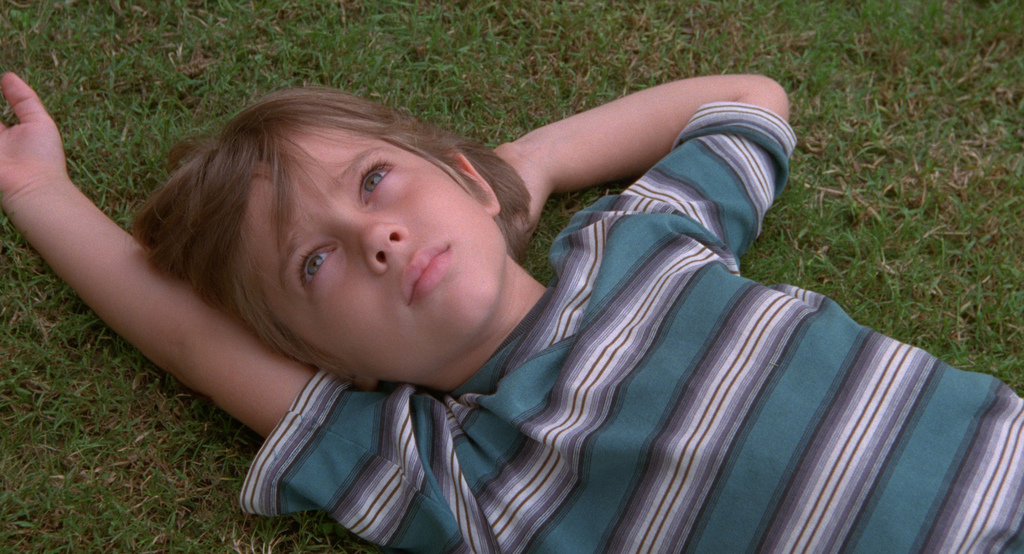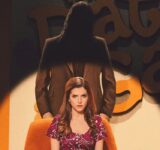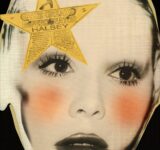Boyhood is not for everyone.
It’s not a quintessential Richard Linklater movie, the way Before trilogy is. It’s odd, in that nothing much happens in Boyhood, a fact acknowledged by Linklater himself. It’s definitely not your average Bildungsroman American film.
Boyhood follows the story of Mason (Ellar Coltrane), from his childhood to adolescence, following his journey as he grows up, leaves the nest and takes flight. Linklater cast one of his favorites, Ethan Hawke along with Patricia Arquette to play Mason’s divorced parents. His daughter, Lorelei Linklater played Mason’s older sister, Samantha. The casting is almost pitch perfect, considering how the children felt like they could have been Hawke and Arquette’s actual kids.
It took Richard Linklater 12 years to finish filming the movie. He jokingly dubbed it ‘a summer camp art project’.
He got the cast together every year, shooting the scenes in real time. The result is an experience that feels authentic, and beautiful in its simplicity. The movie, however, does have several quirks.
Often, it seems that things happen without resulting in any consequences. This is partly because it doesn’t follow the fundamental structure of a drama. Often, the kids go through scenes where, instead of reacting, they have this nonchalant demeanor that prevents the audience from connecting with their characters. For a boy that is blooming, Mason rarely comes off as vigorous like the time when he argues with his father about inheriting his father’s car. Often, Mason and Samanta feel like perfectly competent characters without any flaws. These details strike out from a structural perspective.

If there is one thing Richard Linklater has a penchant for, it has to be his flair for creating engaging dialogue. He brought in terrific actors like Hawke and Arquette and they did more than they performed more than well. Arquette plays a mom that initially struggles to make herself successful all the while falling for two miserable men. Hawke plays the somewhat negligent father who turns his life around for his children (and his remarkable second wife).
Arquette flawlessly enacted the various temperaments of a frustrated mother, her outburst before Mason leaves for college is momentous and thought provoking. Despite lackluster characterization, Coltrane does well as Mason. Hawke is effortlessly charming as the father that refuses to stop trying to be there for his children.
Linklater is definitely an accomplished director since he is capable of imbuing moments with the seamless emotions, like the moment when the father has the ‘birds and the bees talk’. The moment felt justly awkward as it should have. The point where the father finally pays the mother child support as the mother emanates a contradicting emotion is also fascinating.
The filming technique of the movie is fairly synonymous to the style of a documentary and even the seemingly extra shots like the kids fighting as children is visually endearing. The songs selected are fun, nostalgic and not overly accentuated. The color grading is interestingly on the mostly pastel side to exude the whiff of the late 90s.

Boyhood is, in a way, a culmination of all Linklater’s projects to date. There are touches of Dazed and Confused in the struggles of an adolescent Mason trying to find meaning, and then there are flashes of the Before trilogy with Mason and his girlfriend falling in love and exploring each other.
The lack of plot doesn’t always work to the movie’s advantage, but there’s a novelty to it, with events unfolding matter-of-factly, as they often do in life.
Ethan Hawke dubbed the film a ‘timelapse photography of a human being’, and judging by the film’s end results, he isn’t wrong.
Is it Linklater’s best film? That’s a tough argument to make. But it definitely deserves a place with the rest of his filmography. The beautiful, sweeping visuals and realistic narrative makes for an engaging viewing. Yes, there is novelty in the film’s timelapse conceit, but it’s also populated by real, breathing people with flaws, portrayed by fantastic actors in naturalistic fashion.






















